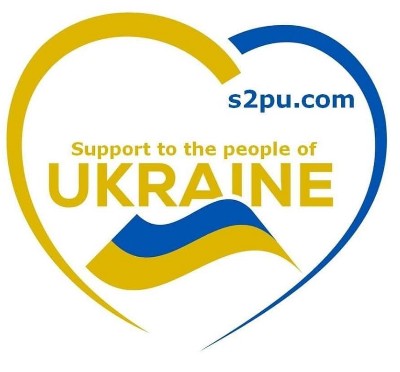
Over 13,000 people have been killed in Ukraine since Russia annexed Crimea in violation of international law and supported separatist rebels in the east of the country. The smouldering conflict in the immediate vicinity of Europe is also a major security risk for Germany. The Federal Government is therefore committed to peace and stability in Ukraine. The five most important points are as follows:
1) Implementing the Minsk agreements
Germany is relying on the Minsk peace plan in order to put a stop to the violence. Russia, Ukraine, Germany and France agreed to a binding road map in 2015. Among other things, the parties to the conflict committed themselves to ceasing hostilities, withdrawing heavy weapons and establishing a buffer zone. Since then, however, Russia and Ukraine have repeatedly accused each other of violating the agreement. Germany is committed to achieving further progress in negotiations together with France.
2) Not tolerating infringements of international law
The annexation of Crimea by Russia is a serious breach of international law. The occupation and annexation of the Crimea was condemned in a United Nations resolution. The so-called “referendum”, in which the preservation of the status quo was not a choice, was not monitored or recognised by any of the world’s independent international organisations. For Germany, it is clear that an unlawful act cannot create a new, legally valid situation. The Federal Government is firmly committed to the territorial integrity of Ukraine.
3) Strengthening and protecting OSCE observers
Impartial observers are indispensable to the peace process. It is with this in mind that the Special Monitoring Mission of the Organization for Security and Co-operation in Europe (OSCE) was deployed in the conflict region in eastern Ukraine. The organisation is perfectly positioned to be a neutral observer of the conflict as its 57 participating States include not only Russia and Ukraine, but also all European countries, as well as the US and Canada. However, its observers keep on getting caught up in the crossfire, are obstructed and prevented from carrying out their work. Last year, an OSCE staff member was killed by an exploding mine. For Germany, the protection of OSCE observers and their equipment is therefore one of the most important priorities when discussing developments in eastern Ukraine. The German government has seconded more than 30 experts to the mission and also supports it with materials, training and expertise.
4) Assessing deployment of blue helmet troops
Germany supports the proposal under discussion internationally to establish a United Nations peace mission for the conflict. From the Federal Government’s perspective, it is crucial that such a mission should not lead to the status quo being cemented. The objective must be a viable peace solution as envisaged by the Minsk peace plan. Germany will continue to support the talks on the establishment of a UN mission with a targeted mandate.
5) Supporting reforms in Ukraine
Germany is supporting the country with a comprehensive action plan in order to help Ukraine develop in a stable and peaceful manner. This is not just a question of helping the Ukrainian economy to grow sustainably. Germany supports Ukrainians’ commitment to a diverse and open society in a targeted manner. Moreover, the Federal Government is promoting efforts to modernise administration as well as greater decentralisation. Germany is also supporting numerous aid projects to alleviate the suffering of internally displaced persons and to support reconstruction in eastern Ukraine.

Comments powered by CComment